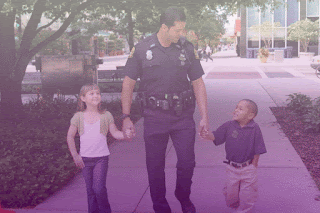We in American are extremely blessed, overabundantly, exuberantly and impossibly blessed. I often catch myself worrying over some trivial problem or becoming frustrated in the perceived tardiness of something I desire.
God gives/blesses to one so that they may give to another. There is war, famine, disease and death still to be found in this fallen terra firma. Rather than becoming frustrated because you lack that plasma television or your boss just yelled at you, rather, spend your time and set your mind to the task of looking for ways to help others. In this country and elsewhere.
You will quickly find that having less creates more joy than having more.
Let's all begin our search anew and be the light to all we meet.
Matthew 25: 34-46
34"Then the King will say to those on his right, 'Come, you who are blessed by my Father; take your inheritance, the kingdom prepared for you since the creation of the world. 35For I was hungry and you gave me something to eat, I was thirsty and you gave me something to drink, I was a stranger and you invited me in, 36I needed clothes and you clothed me, I was sick and you looked after me, I was in prison and you came to visit me.'
37"Then the righteous will answer him, 'Lord, when did we see you hungry and feed you, or thirsty and give you something to drink? 38When did we see you a stranger and invite you in, or needing clothes and clothe you? 39When did we see you sick or in prison and go to visit you?'
40"The King will reply, 'I tell you the truth, whatever you did for one of the least of these brothers of mine, you did for me.'
41"Then he will say to those on his left, 'Depart from me, you who are cursed, into the eternal fire prepared for the devil and his angels. 42For I was hungry and you gave me nothing to eat, I was thirsty and you gave me nothing to drink, 43I was a stranger and you did not invite me in, I needed clothes and you did not clothe me, I was sick and in prison and you did not look after me.'
44"They also will answer, 'Lord, when did we see you hungry or thirsty or a stranger or needing clothes or sick or in prison, and did not help you?'
45"He will reply, 'I tell you the truth, whatever you did not do for one of the least of these, you did not do for me.'
46"Then they will go away to eternal punishment, but the righteous to eternal life."
God gives/blesses to one so that they may give to another. There is war, famine, disease and death still to be found in this fallen terra firma. Rather than becoming frustrated because you lack that plasma television or your boss just yelled at you, rather, spend your time and set your mind to the task of looking for ways to help others. In this country and elsewhere.
You will quickly find that having less creates more joy than having more.
Let's all begin our search anew and be the light to all we meet.
Matthew 25: 34-46
34"Then the King will say to those on his right, 'Come, you who are blessed by my Father; take your inheritance, the kingdom prepared for you since the creation of the world. 35For I was hungry and you gave me something to eat, I was thirsty and you gave me something to drink, I was a stranger and you invited me in, 36I needed clothes and you clothed me, I was sick and you looked after me, I was in prison and you came to visit me.'
37"Then the righteous will answer him, 'Lord, when did we see you hungry and feed you, or thirsty and give you something to drink? 38When did we see you a stranger and invite you in, or needing clothes and clothe you? 39When did we see you sick or in prison and go to visit you?'
40"The King will reply, 'I tell you the truth, whatever you did for one of the least of these brothers of mine, you did for me.'
41"Then he will say to those on his left, 'Depart from me, you who are cursed, into the eternal fire prepared for the devil and his angels. 42For I was hungry and you gave me nothing to eat, I was thirsty and you gave me nothing to drink, 43I was a stranger and you did not invite me in, I needed clothes and you did not clothe me, I was sick and in prison and you did not look after me.'
44"They also will answer, 'Lord, when did we see you hungry or thirsty or a stranger or needing clothes or sick or in prison, and did not help you?'
45"He will reply, 'I tell you the truth, whatever you did not do for one of the least of these, you did not do for me.'
46"Then they will go away to eternal punishment, but the righteous to eternal life."










